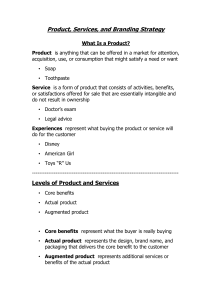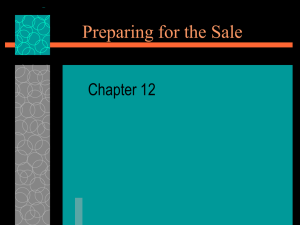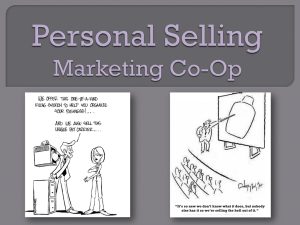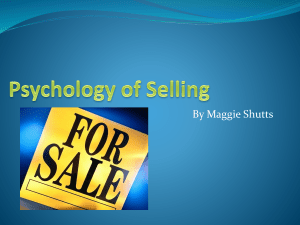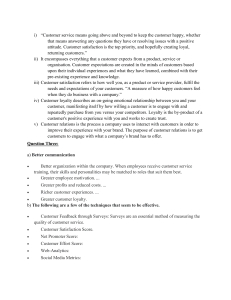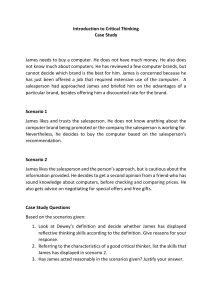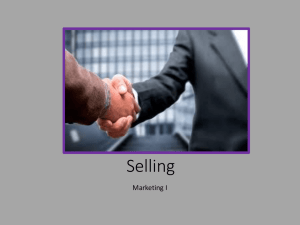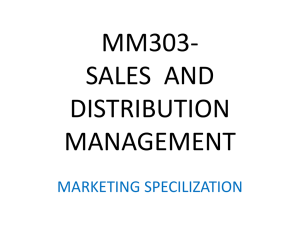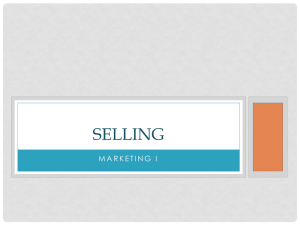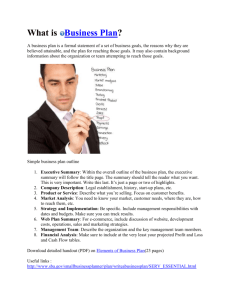Product Service Technology QUIZ REVIEW
advertisement
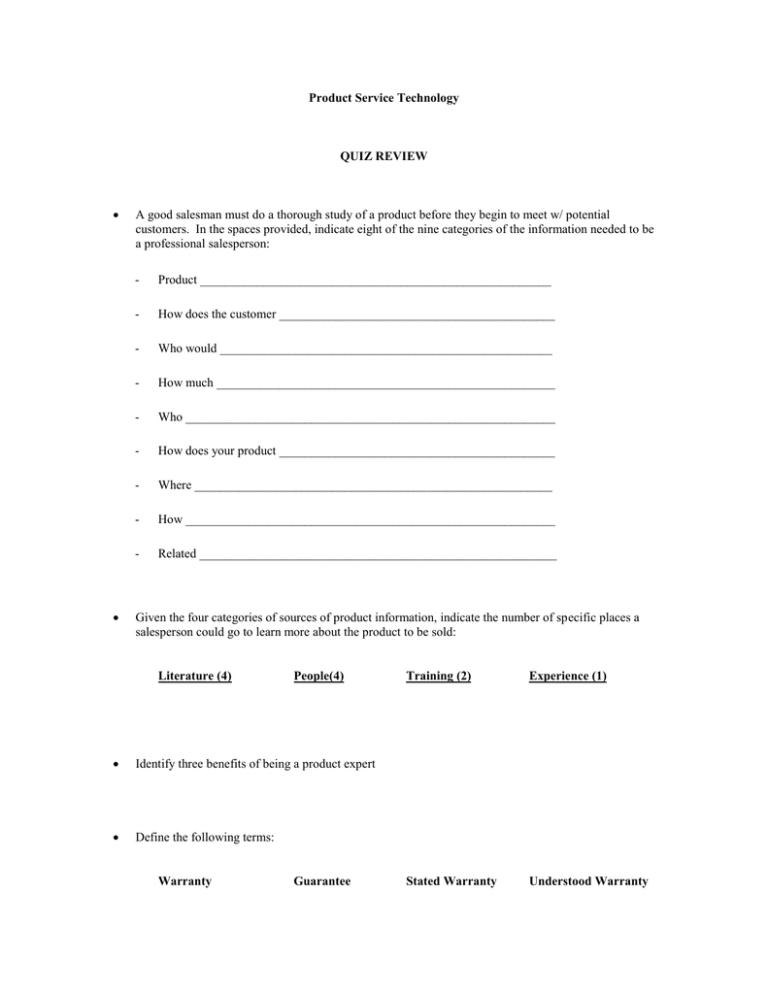
Product Service Technology QUIZ REVIEW A good salesman must do a thorough study of a product before they begin to meet w/ potential customers. In the spaces provided, indicate eight of the nine categories of the information needed to be a professional salesperson: - Product ________________________________________________________ - How does the customer ____________________________________________ - Who would _____________________________________________________ - How much ______________________________________________________ - Who ___________________________________________________________ - How does your product ____________________________________________ - Where _________________________________________________________ - How ___________________________________________________________ - Related _________________________________________________________ Given the four categories of sources of product information, indicate the number of specific places a salesperson could go to learn more about the product to be sold: Literature (4) People(4) Identify three benefits of being a product expert Define the following terms: Warranty Guarantee Training (2) Experience (1) Stated Warranty Understood Warranty Define the following terms: Brand Trademark Describe three strategies that a business could implement to establish brand awareness and loyalty Define: Convenience Good Shopping Good Describe three keys to better selling shopping goods Specialty Good PRODUCT SERVICE TECHNOLOGY Product Research Notes OUTLINE I.) Who Uses the Product? A.) Describe the demographics of the people most likely to buy or use your product. Use at least three: 1.) Sample demographics include: a.) age f.) race b.) sex g.) creed c.) marital status h.) culture d.) income i.) hobbies e.) occupation j.) Other(s)? II.) What Do Consumers Want Out of the Product? A.) Describe all the possible buying motives that could encourage the target market to buy your product. Describe at least three. 1.) Sample buying motives include: a.) rational b.) Emotional i.) economy i.) Appearance ii.) protection ii.) Comfort iii.) health iii.) Uniqueness iv.) profit iv.) Sentiment v.) durability v.) Brand Loyalty III.) How Does the Product Satisfy the Wants and Needs of the Consumer? A.) Describe all the different ways the product can be used and the advantage to the buyer for each use. For example, a sewing machine can be used for fun and profit, drums can be used in a band or for personal use only, and a new brief case might be used by teachers, students, or business people. Each would have a different purpose. IV.) Why Does the Product Satisfy the Consumers Wants and Needs? A.) Complete a product analysis as discussed in class of your product identifying at minimum five features and benefits. Features are facts about your product - materials used, processes used, quality of workmanship, grades, special attachments, finishes, warrantees, services provided, awards for past performance, etc. - and benefits are advantages the consumer gets for buying and using your product BECAUSE OF THE SPECIFIC FEATURES. 1.) Use the following model at your guide: 2.) Identify Any Limitations or Disadvantages to Your Product a.) Consider: i.) the products limitations (things the product can't do) ii.) dangers to using the product iii.) objections to buying the product the customer might have V.) How Much Should be Spent on the Product? A.) Describe not just the most common prices for your product, but the cost savings the customer will enjoy for using your product or the expense they will incur if they don't use the product. 1.) Consider: a.) Common Retail Price Range b.) Savings from Using the Product c.) Cost of Maintenance d.) Payment Arrangements e.) Market Price Behavior f.) The Competition's Prices Range V.) Where Should the Product Be Purchased? A.) Describe the geographic regions in which the product can be bought B.) Describe the best outlets for the product. If you choose to do a product from your training station, explain why your training stations is the best outlet. 1.) Consider: a.) Price Ranges b.) Customer Services c.) Policy on Customer Satisfaction d.) Quality of the Sales Force e.) Other Factors V.) When Should the Product Be Purchased? A.) Time is often a factor in deciding what product to buy and from what outlet to buy from. 1.) Consider: a.) Time When Product is Available b.) Time When the Price is as Low as Possible (i.e. Common Sales Events) c.) Anticipated Price Changes d.) Time Required for Delivery e.) Other Time Factors VI.) How Should the Product Be Cared For? A.) Almost all specialty products needs special care if they are to provide the benefits hoped for by the consumer. A salesperson is often the one customers ask about the care of a product. 1.) Consider: a.) How do You Assemble the Item? b.) Activities NOT to use the Product For c.) Care and Maintenance Recommended by the Manufacturer d.) Availability of Repair Services e.) Other Products With Which the Product May be Used f.) Other Factors to Consider to Ensure Long Life of the Product VII.) Sources of Product Information A. Literature a. Tags, Seals, Labels b. Brochures/Leaflets c. Stamps d. Box Covers/Wrappers e. Advertising B. People a. b. c. d. e. f. g. Managers Buyers Trainers Co-workers/Salespeople Vendors Repair People Customers C. Formal Training a. Manufacturer Supplied b. Retailer Supplied D. Direct Experience a. Try It Yourself
